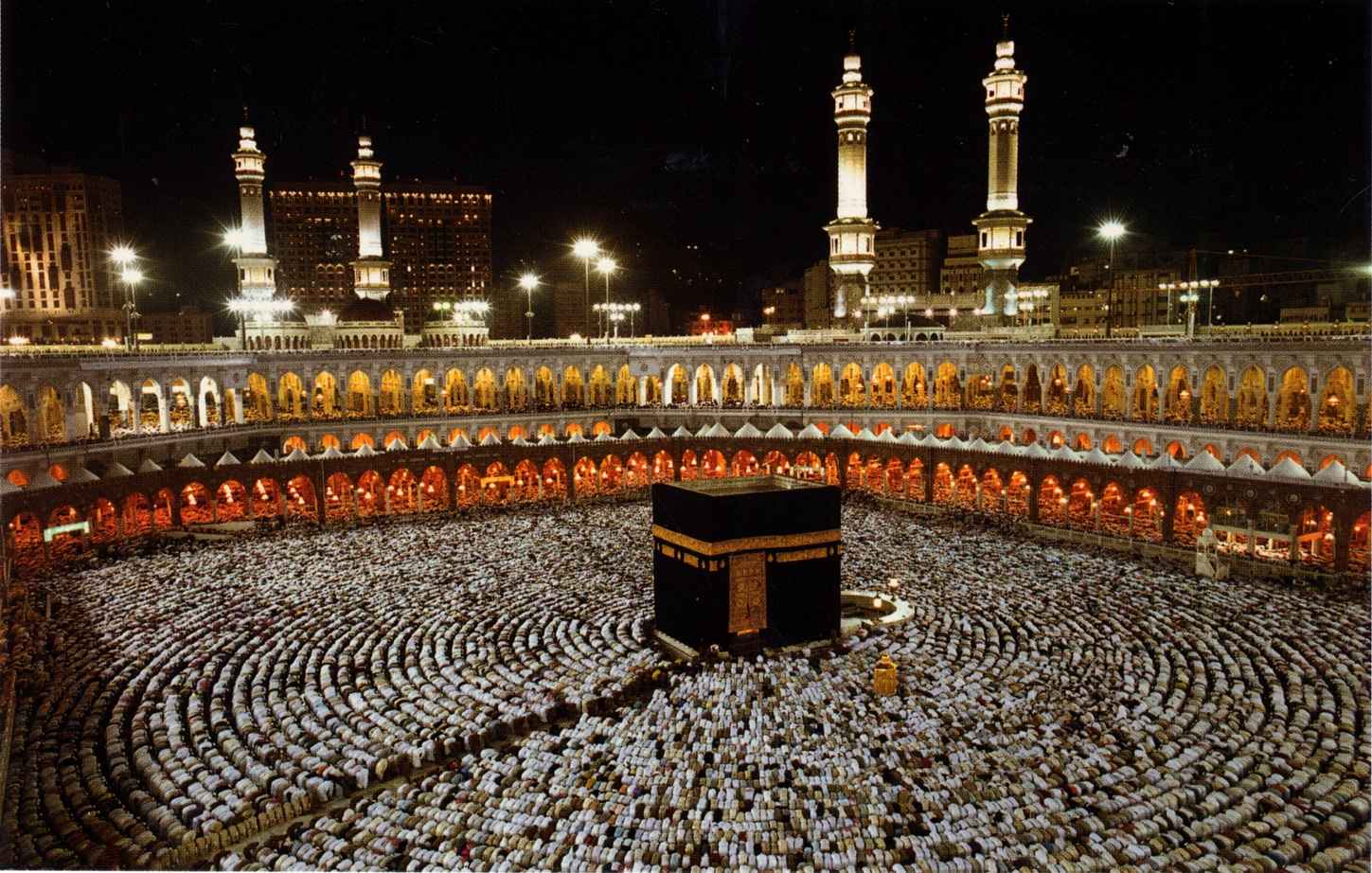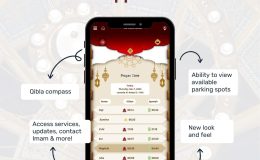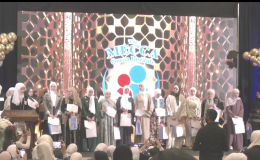By Sheikh Hassan Aly, Imam & Religious Director, The Mecca Center
All thanks and praise is due to Allah, I bear witness there is no God but Allah, alone without any partners, and I bear witness that Muhammad is His servant and His Messenger.
The Prophet Muhammad (saw) said: “There is no deed that is better in the sight of Allah (swt) or more greatly rewarded than a good deed done in the (first) ten days of Al-Adha” Sahih Al-Bukhari. In surat Al-Fajr, Allah (swt) swears an oath by the first ten days of Dhul-Hîjjah: “By the dawn (1); By the ten nights (i.e. the first ten days of the month of Dhul-Hîjjah)(2)”
The first ten days of Dhul-Hîjjah carry special status among the days of the year. Just like the last ten nights of Ramadan are the best ten nights out of the year, these first ten days of Dhul-Hijjah are the best days of the year and the most beloved to Allah (swt) as they combine acts of worship in a way unlike any other time in the year. In these days, millions of Muslims from all over the world are performing the fifth pillar of Islam (Hajj). Hajj and its rites were first ordained by Allah (swt) in the time of the Prophet lbraaheem [Abraham] (as) and he was the one who was entrusted by Allah to build the Ka’ba – the House of Allah – along with his son Ismaa’eel [Ishmael] at Makkah.
“And remember when We showed Ibraaheem the site of the [Sacred] House [saying]: Associate not anything [in worship with Me and purify My House for those who circumambulate it [i.e. perform tawaaf] and those who stand up for prayer and those who bow down and make prostration [in prayer etc.].” [Surah Al-Hajj 22:26]. Then Allah Almighty ordered them to invite people to Hajj: “And proclaim to mankind the Hajj (pilgrimage). They will come to you on foot and on every lean camel; they will come from every deep and distant (wide) mountain highway (to perform Hajj).” [Surah Al-Hajj 22:27]
My dear respected brothers and sisters; this is a great season of blessings and Barakat, a great season of seeking Allah’s forgiveness and mercy. In surat Al-Imran, Allah (swt) said: “March forth in the way (which leads to) forgiveness from your Lord, and for Paradise as wide as are the heavens and the earth, prepared for Al-Muttaqûn (the pious). (133) Those who spend [in Allah’s Cause] in prosperity and in adversity, who repress anger, and who pardon men; verily, Allah loves Al-Muhsinûn (the good-doers). (134) And those who, when they have committed Fahishah (illegal sexual intercourse) or wronged themselves with evil, remember Allah and ask forgiveness for their sins; and none can forgive sins but Allah – and do not persist in what (wrong) they have done, while they know. (135) For such, the reward is forgiveness from their Lord, and Gardens with rivers flowing underneath (Paradise), wherein they shall abide forever. How excellent is this reward for the doers (who do righteous deeds according to Allah’s Orders). (136)”
Now, what deeds can we perform to attain the pleasure of Allah (swt) in the first 10 days of Dhul-Hijjah?
- Renew your Tawbah with sincere heart: In surat Al-Qasas, Allah (swt) says:“But as for him who repented, believed, and did righteous deeds, then he will be among those who are successful.”
- Fast the first nine days and especially the ninth ‘The Day of ‘Arafah’: The Prophet Muhammad (saw) said in sahih Al-Bukhari and Muslim: “Anyone who fasts for one day for Allah’s pleasure, Allah will keep his face away from the (Hell) fire for (a distance covered by a journey of) seventy years.” Also he (saw) said in Sahih Muslim: “Fasting the Day of ‘Arafah (ninth of Dhul-Hijjah) is an expiation for (all the sins of) the previous year and expiation for (all the sins of) the coming year.”
- Offering Du’aa on the Day of ‘Arafah: It was narrated from ‘Abd-Allaah ibn ‘Amr ibn al-‘Aas that the Prophet (saw) said: “The best of du’aa is du’aa on the day of ‘Arafah, and the best that I and the Prophets before me said is ‘Laa ilaaha ill-Allaah wahdahu la shareeka lah, lahu’l-mulk wa lahu’l-hamd wa huwa ‘ala kulli shay’in qadeer (There is no god but Allah alone, with no partner or associate; His is the dominion, to Him be praise, and He has power over all things).” Narrated by al-Tirmidhi.
- Qiyam at night: Narrated by Al-Tirmidhi, the Prophet Muhammad (saw) said: “You should pray qiyaam al-layl, for it is the custom of the righteous who came before you and it brings you closer to your Lord, and expiates sins and prevents misdeeds.”
- Perform Takbeer and remember Allah: Al-Bukhari narrated that Ibn ‘Umar and Abu Hurayrah used to go out in the marketplace during the first ten days of Dhul-Hijjah, reciting Takbeer, and the people would recite Takbeer when they heard them.
- Sacrifice an animal and distribute the meat: It was narrated in Saheeh al-Bukhaari and Muslim that Anas ibn Maalik said: “The Prophet (saw) sacrificed two white rams speckled with black. He slaughtered them with his own hand, said ‘Allahu Akbar’ and put his foot on their necks.” Also, Ahmed narrated that Ibn Umar said: “The Prophet lived in Madina for ten years and every year he slaughtered an animal.”
My dear brothers and sisters, Let us hasten to make the most of these great days. I ask Allah (SWT) to accept our prayers, our fasts, our du’aa, and our acts of good and to keep this momentum of Ibadah going throughout our lives. May Allah bring joy, peace, and happiness to all of us. Oh Allah, to you only we ask for help and guidance as you have power over all things.
Eid Mubarak!








Leave a Comment